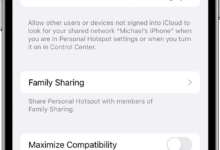The Ultimate Guide to Cloud Storage for Your Smartphone
Contents
Hello, Readers!
In the era of digital deluge, our smartphones have become indispensable devices that hold a treasure trove of essential personal and professional data. With the deluge of photos, videos, documents, and applications, our devices are often bursting at the seams, and precious storage space becomes a precious commodity.
Cloud storage has emerged as a game-changer in the realm of mobile data management, offering a myriad of benefits that can revolutionize your smartphone experience. From ensuring data security to freeing up valuable storage space and enabling seamless synchronization across multiple devices, cloud storage is an invaluable tool for modern smartphone users.
Introduction
Cloud storage is a cloud computing model that enables the storage and retrieval of data over the internet. Unlike traditional storage methods that rely on physical devices like hard drives, cloud storage utilizes a network of remote servers to store data securely and make it accessible from anywhere with an internet connection.
By storing your phone’s data in the cloud, you can enjoy a host of advantages, including:
- Enhanced data security
- Significant storage space
- Effortless synchronization
- Convenient access from multiple devices
- Reduced risk of data loss
As a result, cloud storage is transforming the way we store and manage our data on smartphones, offering unparalleled convenience, security, and flexibility.
The Strengths of Cloud Storage
Cloud storage offers a wealth of advantages for smartphone users, including:
Enhanced Data Security
Cloud storage provides robust data protection measures, safeguarding your sensitive information from unauthorized access, theft, or damage. Leading cloud storage providers implement advanced encryption algorithms and comply with stringent industry standards to ensure the integrity and confidentiality of your data.
Massive Storage Capacity
Cloud storage breaks the limitations of physical storage, offering virtually unlimited capacity to store your growing collection of photos, videos, music, and documents. With cloud storage, you can bid farewell to the frustration of running out of space on your smartphone and enjoy the peace of mind knowing that your data is safe and accessible.
Effortless Synchronization
Cloud storage seamlessly synchronizes your data across all your devices, including your smartphone, tablet, and computer. With automatic syncing, any changes you make to your data on one device are instantly reflected on all other connected devices, ensuring that your most up-to-date information is always at your fingertips.
Remote Access Convenience
Cloud storage empowers you to access your data from anywhere with an internet connection. Whether you’re on the go, traveling abroad, or simply working from home, your cloud-stored data is always accessible, allowing you to stay connected and productive at all times.
Disaster Recovery
Cloud storage acts as a reliable backup solution, protecting your data from accidental deletion or hardware failures. In the event of a disaster or device loss, your data remains securely stored in the cloud, ensuring peace of mind and preventing catastrophic data loss.
The Weaknesses of Cloud Storage
While cloud storage offers numerous benefits, there are also some potential drawbacks to consider:
Internet Dependence
Cloud storage requires a stable internet connection for access. If you encounter connectivity issues or are in an area with limited or no internet access, you may not be able to access your cloud-stored data, which could be problematic if you rely on it for critical tasks.
Subscription Costs
Many cloud storage providers offer free storage up to a certain limit, but once you exceed that limit, you may need to purchase a subscription to continue storing your data. Subscription costs can vary depending on the provider and the amount of storage space required.
Privacy Concerns
Some users may have concerns about the privacy and security of their data stored in the cloud. It’s crucial to choose a reputable cloud storage provider that adheres to strict privacy policies and takes appropriate measures to protect user data from unauthorized access or misuse.
A Comprehensive Comparison of Cloud Storage Providers
| Feature | Provider A | Provider B | Provider C |
|---|---|---|---|
| Storage Capacity | 15GB Free, Paid Plans Up to 1TB | 10GB Free, Paid Plans Up to 2TB | 5GB Free, Paid Plans Up to 5TB |
| Synchronization | Automatic, Real-Time | Manual or Automatic, Customizable | Automatic, Folder-Based |
| Security Features | 256-Bit AES Encryption, Two-Factor Authentication | 128-Bit AES Encryption, End-to-End File Encryption | 256-Bit AES Encryption, Zero-Knowledge Proof |
| Pricing | $10/Month for 100GB | $50/Year for 1TB | $15/Month for 2TB |
| Additional Features | File Versioning, Cloud Backup | Document Scanning, Image Optimization | Collaboration Tools, Data Analytics |
FAQs about Cloud Storage
-
Is cloud storage secure?
Yes, reputable cloud storage providers implement robust security measures to protect user data, including encryption and two-factor authentication.
-
How much does cloud storage cost?
Cloud storage costs vary depending on the provider and the amount of storage space required. Many providers offer free storage up to a certain limit, with paid plans available for additional storage.
-
Can I access my cloud storage from multiple devices?
Yes, cloud storage allows you to access your data from any device with an internet connection. Synchronization across devices is typically automatic, ensuring that you always have the most up-to-date information.






